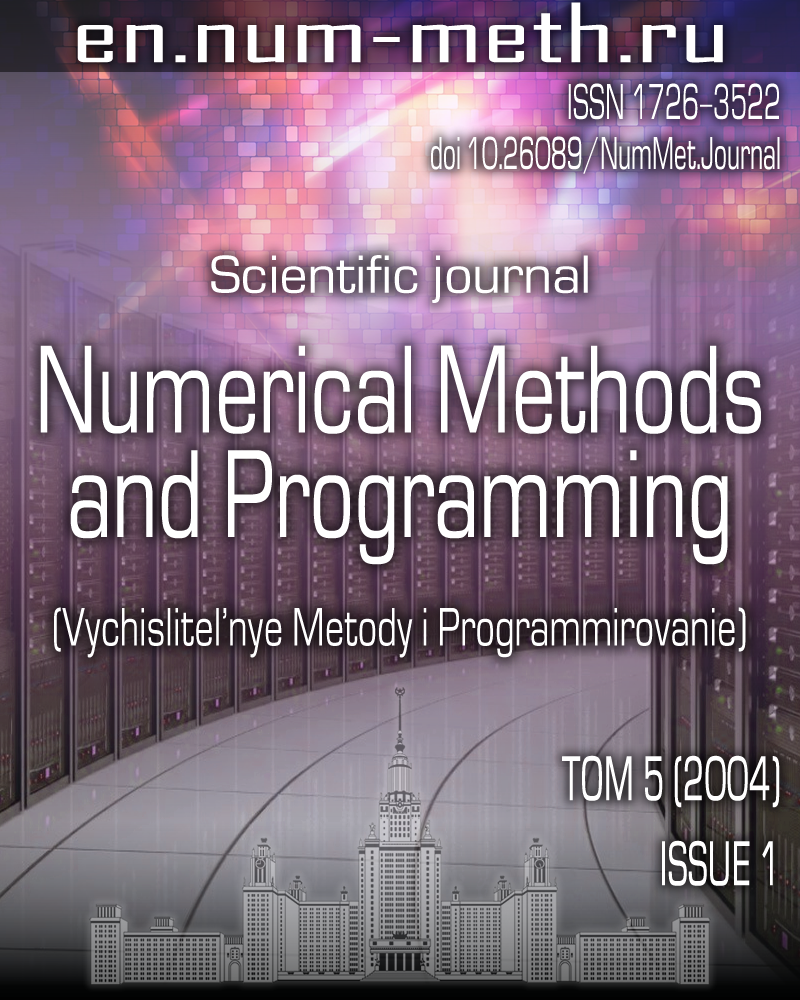On projection operators for numerical stabilization
Keywords:
стабилизация
граничные условия
уравнения в частных производных
проектирование на многообразие
обусловленность матриц
Abstract
Constructing the operators of projection onto appropriate linear manifolds is a very important problem for numerical stabilization of solutions to partial differential equations with the help of boundary feedback control. Two ways of projection resulting in continuous and discontinuous images for fixed smooth original functions are studied. Spectral characteristics of condition numbers for discrete projection operators are analyzed and compared. Optimization of these characteristics is discussed. Numerical results devoted to stabilization of solutions to Chafee-Infante’s equations with initial functions obtained on the basis of both approaches are presented.
Published
2004-09-21
Issue
Section
Section 1. Numerical methods and applications
References
- Фурсиков А.В. Стабилизируемость квазилинейного параболического уравнения с помощью граничного управления с обратной связью // Матем. сборник. 2001. 192, № 4. 115-160.
- Иванчиков А.А. Численное решение некоторых спектральных задач для уравнений Стокса // Вычисл. методы и программ. 2003. 4, № 2. 58-74.
- Самарский А.А., Николаев Е.С. Методы решения сеточных уравнений. М.: Наука, 1978.
- Chizhonkov E.V. Numerical aspects of one stabilization method // Rus. J. Numer. Anal. Math. Modeling. 2003. 18, N 5. 363-376.
- Fursikov A.V. Real process corresponding to the 3D Navier-Stokes system and its feedback stabilization from boundary. The M.,I. Vishik Seminar. AMS Translations, Series 2. 2002. 206. 95-123.
- Henry D. Geometric theory of semilinear parabolic equations. Lecture Notes in Mathem. Volume 840. New York: Springer-Verlag, 1981.
- Smith B.T., Boyle J.M., Dongarra J.J., Garbow B.S., Ikebe Y., Klema V.C., and Moler C.B. Matrix eigensystem routines - EISPACK Guide. Lecture Notes in Computer Science. Volume 6, 2nd Ed. New York: Springer-Verlag, 1976.


